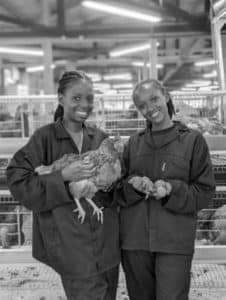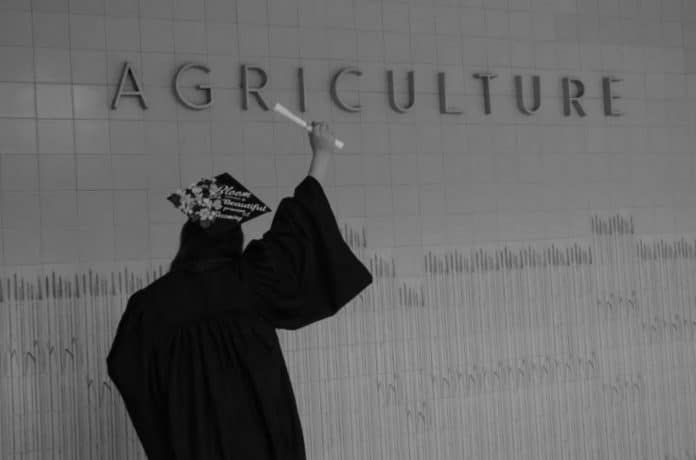Introduction to Katavi University of Agriculture
Located in the heart of Tanzania’s rural west, Katavi University of Agriculture is a leading institution dedicated to advancing agricultural knowledge and skills. Established in 1985, the university has been at the forefront of transforming the region’s agricultural landscape, empowering local communities, and contributing to the nation’s food security.
As a premier center of agricultural education and research, Katavi University of Agriculture is committed to equipping students with the necessary tools and expertise to tackle the unique challenges faced by the region’s farmers and agribusinesses. Through its innovative curriculum, cutting-edge facilities, and strong community engagement, the university is driving sustainable agricultural development and economic growth in Tanzania’s rural west.
The Importance of Agricultural Development in Tanzania’s Rural West
Agriculture is the backbone of Tanzania’s economy, particularly in the rural western regions. This area is known for its vast fertile lands, abundant natural resources, and hardworking farming communities. However, the region has long faced various challenges, including limited access to modern farming techniques, inadequate infrastructure, and a lack of specialized agricultural knowledge.
By addressing these challenges, Katavi University of Agriculture plays a crucial role in empowering local farmers and entrepreneurs to unlock the full potential of the region’s agricultural sector. Through its comprehensive programs and research initiatives, the university is working to improve crop yields, diversify agricultural production, and enhance the overall resilience and profitability of the region’s farming communities.
Founding and History of Katavi University of Agriculture

Katavi University of Agriculture was established in 1985 with the primary goal of addressing the pressing agricultural needs of Tanzania’s rural western regions. The university was founded as a result of a collaborative effort between the Tanzanian government, local community leaders, and international development organizations, all of whom recognized the immense potential and untapped opportunities in the region’s agricultural sector.
Over the past three decades, Katavi University of Agriculture has evolved into a renowned institution, continuously adapting its curriculum and research priorities to meet the changing needs of the agricultural industry. The university’s steadfast commitment to innovation, community engagement, and sustainable development has earned it a reputation as a leading hub for agricultural education and innovation in Tanzania.
Programs and Courses Offered at Katavi University of Agriculture
Katavi University of Agriculture offers a diverse range of academic programs and courses designed to cater to the diverse needs of students and professionals in the agricultural sector. The university’s curriculum is constantly updated to reflect the latest advancements in agricultural science, technology, and management practices.
Some of the key programs and courses available at Katavi University of Agriculture include:
- Bachelor of Science in Agriculture: This comprehensive program covers a wide range of agricultural disciplines, including crop production, animal husbandry, agricultural economics, and agribusiness management.
- Master of Science in Agricultural Extension and Rural Development: This graduate-level program equips students with the skills and knowledge to effectively engage with and empower rural farming communities, facilitating the adoption of innovative agricultural practices.
- Diploma in Agricultural Mechanization: This program focuses on the operation, maintenance, and repair of agricultural machinery, enabling students to contribute to the mechanization of the region’s farming sector.
- Certificate in Sustainable Aquaculture: This program provides specialized training in the sustainable management and cultivation of aquatic resources, addressing the growing demand for fish and seafood products in the region.
- Short Courses and Training Workshops: Katavi University of Agriculture regularly offers a range of short-term training programs and workshops on topics such as organic farming, precision agriculture, post-harvest handling, and agribusiness entrepreneurship.
Research and Innovation at Katavi University of Agriculture
At the heart of Katavi University of Agriculture’s mission is a strong commitment to research and innovation. The university’s research agenda is closely aligned with the pressing needs and challenges faced by the region’s agricultural sector, with a focus on developing practical, evidence-based solutions.
Some of the key research areas and innovations at Katavi University of Agriculture include:
- Crop Improvement and Adaptation: Researchers at the university are working to develop high-yielding, disease-resistant crop varieties that are well-suited to the region’s climatic conditions and farming practices.
- Sustainable Soil and Water Management: The university’s scientists are exploring innovative techniques for improving soil fertility, water conservation, and sustainable irrigation methods to enhance the productivity and resilience of the region’s agricultural systems.
- Integrated Pest Management: Katavi University of Agriculture is at the forefront of developing and promoting eco-friendly pest control strategies that reduce the reliance on harmful pesticides while maintaining crop yields.
- Agribusiness and Value Chain Development: Researchers are collaborating with local farmers and entrepreneurs to identify and address bottlenecks in the region’s agricultural value chains, improving market access and profitability for smallholder producers.
- Renewable Energy and Precision Agriculture: The university’s researchers are exploring the integration of renewable energy technologies and precision farming techniques to enhance the efficiency and sustainability of the region’s agricultural operations.
Collaborations and Partnerships with Other Institutions and Organizations
Katavi University of Agriculture recognizes the importance of collaboration and partnership in driving agricultural development. The university has established strong relationships with a wide range of institutions and organizations, both within Tanzania and globally, to leverage expertise, resources, and best practices.
Some of the key collaborations and partnerships include:
- Government Agencies: The university works closely with the Ministry of Agriculture, the Tanzania Agricultural Research Institute, and other government entities to align its research and educational initiatives with national agricultural priorities.
- International Research Centers: Katavi University of Agriculture collaborates with renowned international agricultural research centers, such as the International Maize and Wheat Improvement Center (CIMMYT) and the International Institute of Tropical Agriculture (IITA), to access cutting-edge research and technologies.
- Development Organizations: The university partners with various local and international development organizations, including the United Nations Development Programme (UNDP) and the United States Agency for International Development (USAID), to implement community-based agricultural development projects.
- Private Sector Entities: Katavi University of Agriculture has forged partnerships with leading agribusinesses, input suppliers, and processing companies to facilitate knowledge-sharing, internship opportunities, and joint research initiatives.
- Peer Institutions: The university collaborates with other leading agricultural universities in Tanzania and the East African region to foster academic exchange, joint research, and the sharing of best practices.
These diverse collaborations and partnerships enable Katavi University of Agriculture to leverage a wide range of expertise, resources, and networks to better serve the needs of the region’s agricultural community.
Facilities and Resources Available at Katavi University of Agriculture

Katavi University of Agriculture is equipped with state-of-the-art facilities and resources that support its educational and research activities. The university’s campus is designed to provide a conducive learning and research environment, catering to the diverse needs of its students, faculty, and the broader agricultural community.
Some of the key facilities and resources available at the university include:
- Modern Laboratories: The university’s well-equipped laboratories, ranging from soil science to food processing, enable students and researchers to conduct cutting-edge experiments and analyses.
- Experimental Farms and Demonstration Plots: Katavi University of Agriculture operates several experimental farms and demonstration plots, where students and researchers can apply their knowledge and test innovative agricultural practices.
- Livestock and Aquaculture Facilities: The university maintains state-of-the-art livestock and aquaculture facilities, allowing students to gain hands-on experience in animal husbandry and aquaculture management.
- Specialized Centers and Institutes: The university is home to several specialized centers and institutes, such as the Center for Sustainable Agriculture and the Institute for Agribusiness and Entrepreneurship, which drive focused research and capacity-building efforts.
- Library and Information Resources: Katavi University of Agriculture’s well-stocked library and digital information resources provide students and researchers with access to a vast array of agricultural literature, journals, and databases.
- Student Accommodation and Amenities: The university’s campus offers comfortable student housing, dining facilities, sports and recreational areas, and other amenities to support the holistic development of its student community.
These world-class facilities and resources, combined with the university’s dedicated faculty and staff, create a vibrant and stimulating environment for learning, research, and innovation in the agricultural sector.
Student Life and Extracurricular Activities at Katavi University of Agriculture
Katavi University of Agriculture is not just a place of academic excellence; it is also a hub of vibrant student life and extracurricular activities. The university recognizes the importance of nurturing well-rounded individuals who can contribute to the development of the agricultural sector and their local communities.
Beyond the classroom, students at Katavi University of Agriculture have the opportunity to engage in a wide range of extracurricular activities, including:
- Student Clubs and Societies: The university supports numerous student-led clubs and societies, such as the Agribusiness Club, the Organic Farming Society, and the Young Farmers’ Association, which provide platforms for students to explore their interests, develop leadership skills, and give back to the community.
- Internships and Practical Attachments: The university’s strong industry connections and partnerships enable students to undertake internships and practical attachments with leading agribusinesses, research institutions, and development organizations, giving them invaluable real-world experience.
- Community Outreach and Extension Services: Students actively participate in the university’s community outreach and extension programs, working alongside local farmers and communities to implement agricultural development initiatives and share knowledge.
- Sports and Cultural Activities: The university’s campus offers a range of sports facilities and hosts various cultural events and celebrations, fostering a vibrant and inclusive student community.
- Entrepreneurship and Innovation Competitions: Katavi University of Agriculture encourages and supports student-led entrepreneurial and innovative projects, providing opportunities for them to showcase their ideas and secure funding and mentorship.
Through these diverse extracurricular activities, Katavi University of Agriculture students develop essential soft skills, cultivate a strong sense of community, and deepen their commitment to the sustainable development of the region’s agricultural sector.
Alumni Success Stories from Katavi University of Agriculture
Katavi University of Agriculture takes great pride in the success stories of its alumni, who have gone on to make significant contributions to the agricultural development of Tanzania’s rural west and beyond. The university’s graduates are recognized for their expertise, entrepreneurial spirit, and commitment to driving positive change in the sector.
Here are a few inspiring examples of Katavi University of Agriculture alumni:
- Fatima Mwakibete: After completing her Bachelor’s degree in Agriculture, Fatima founded a thriving agribusiness that specializes in the production and processing of organic spices. Her enterprise has not only created employment opportunities for local farmers but has also helped to promote sustainable agricultural practices in the region.
- Issa Mchome: Issa, a graduate of the Master’s program in Agricultural Extension and Rural Development, has been instrumental in implementing innovative community-based agricultural projects in several rural communities. His work has empowered smallholder farmers to adopt sustainable farming techniques and improve their livelihoods.
- Amina Juma: As a Diploma in Agricultural Mechanization graduate, Amina has been working as a farm machinery technician, providing essential maintenance and repair services to local farmers. Her expertise has contributed to the increased mechanization and efficiency of the region’s agricultural operations.
- Juma Salum: Juma, a Certificate in Sustainable Aquaculture alumnus, has established a successful fish farming enterprise that supplies high-quality seafood products to the local and regional markets. His business model has inspired other community members to venture into aquaculture, diversifying the region’s agricultural activities.
These are just a few examples of the many Katavi University of Agriculture alumni who are making a tangible impact on the agricultural development of Tanzania’s rural west. The university’s commitment to nurturing skilled, innovative, and socially responsible professionals continues to bear fruit, transforming lives and communities across the region.
Conclusion: The Impact of Katavi University of Agriculture on Agricultural Development in Tanzania’s Rural West
Katavi University of Agriculture has been at the forefront of driving agricultural development in Tanzania’s rural west, empowering local communities and contributing to the nation’s food security. Through its comprehensive educational programs, cutting-edge research initiatives, and strong community engagement, the university has become a beacon of hope and progress for the region’s agricultural sector.
By equipping students with the necessary knowledge, skills, and entrepreneurial mindset, Katavi University of Agriculture is cultivating a new generation of agricultural leaders, innovators, and change-makers. These graduates are not only transforming their own lives but are also spearheading the transformation of the region’s agricultural landscape, addressing critical challenges and unlocking new opportunities.
Moreover, the university’s collaborative approach, forging partnerships with government agencies, development organizations, and the private sector, has amplified its impact, enabling the sharing of resources, expertise, and best practices. This synergistic effort has led to the development of practical, context-specific solutions that are improving the livelihoods of farmers, enhancing food security, and driving sustainable economic growth in Tanzania’s rural west.
As Katavi University of Agriculture continues to evolve and expand its reach, it remains steadfast in its commitment to empowering agricultural development and uplifting the lives of the region’s communities. With its unwavering dedication to innovation, community engagement, and sustainable development, the university is poised to play an increasingly pivotal role in shaping the future of agriculture in Tanzania and beyond.
For more articles related to Education in Tanzania, click here!





























